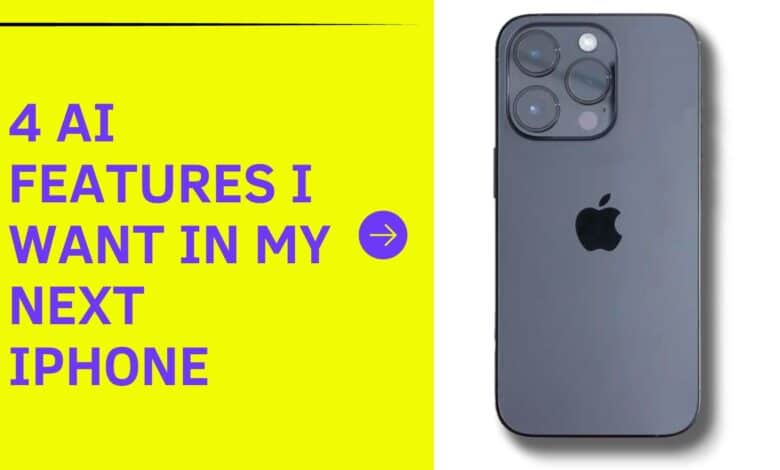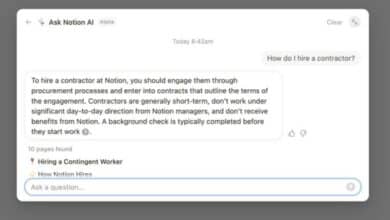4 AI features I want in my next iPhone

In my quest for an enhanced smartphone experience, I find myself yearning for 4 AI features I want in my next iPhone to redefine how I interact with technology.
Believe it or not, Apple’s iconic Siri didn’t originate in Cupertino. Siri’s journey began at SRI International, creating Siri, Inc. in 2007. In 2010, Apple acquired Siri, making it a pivotal feature in the iPhone 4S launched in 2011. Since then, Siri has undergone significant transformations, with ups and downs in its performance. Recent hints from Apple’s CEO, Tim Cook, suggest a substantial investment in generative AI, potentially reshaping the landscape of iOS.
Siri’s Imperfections:
Despite Siri’s intended role in simplifying life through hands-free iPhone and Apple Watch interaction, users often encounter humorous misunderstandings or limitations due to connectivity issues. However, a promising shift might be on the horizon as Apple delves into generative AI, aiming to enhance Siri’s capabilities and reliability.
Apple’s Lag in the AI Race:
Acknowledging Google’s current lead in the AI race with the Pixel 8 lineup, Apple is not entirely absent from the AI scene. The Personal Voice Accessibility tool on iOS exemplifies Apple’s integration of AI features. However, there’s room for improvement, and here are some anticipated AI features that could elevate the iOS experience.
1. Smarter Photo Editing Tools:
Inspired by Google’s Magic Eraser and Magic Editor tools, Apple could enhance the native Photos app with generative AI. Enabling users to effortlessly erase unwanted elements from photos directly within the app would be a game-changer, eliminating the need for third-party tools.
2. Automated Phone Calls Made Tolerable:
Google’s Tensor chips empower Pixel phones with AI-driven features during phone calls. Wait Times, Hold for Me, Direct My Call, and Call Screen are valuable additions that Apple could consider. These features enhance the user experience, offering estimated hold times, on-screen call menu options, and AI screening for spam calls.
3. Revamped Siri:
Siri’s current limitations, particularly in multi-language support and understanding speech disorders, could be addressed through generative AI. With a serious investment, Apple could revamp Siri to be more versatile, accurate, and accommodating to a broader range of users.
4. Intelligent Communication and Apps:
Building on the transformer language learning model introduced in iOS 17, Apple could expand its use beyond autocorrect. Imagine an AI-powered keyboard predicting responses based on your typical messaging style. This could extend to enhancing Siri’s capabilities and integrating AI-assisted features into native apps like Pages, Keynote, and Apple Music.
Conclusion:
As Apple sets its sights on generative AI, the future of iOS holds exciting possibilities. While currently trailing behind Google in the AI race, Apple’s commitment to this technology hints at a potential leap forward. Whether it’s refining Siri, introducing smarter photo editing tools, or revolutionizing communication and native apps, the integration of generative AI could be the next significant leap in iOS innovation. Embracing AI responsibly, Apple has the chance to not only catch up but to redefine the smartphone experience for its users. The journey has just begun, and the potential for transformative advancements in iOS seems limitless.





